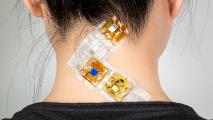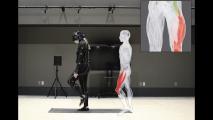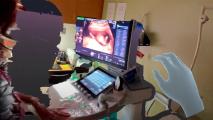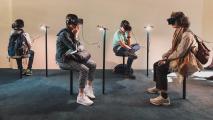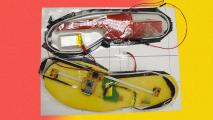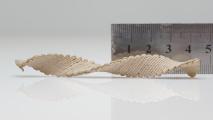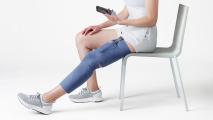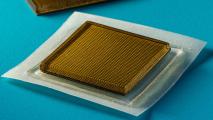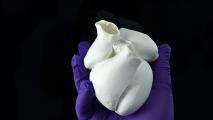
Consumer Tech
The technology of the next decade could remake the modern world, from AI agents to virtual worlds and beyond. The real question is what today’s gadgets mean for tomorrow’s world.
More
This 3D-printed home is made entirely of bio-based materials
Maine researchers are testing a new approach to 3D printing homes, swapping out the standard concrete “ink” for a material made of wood waste.
Sophia the robot becomes first humanoid to be signed by a gaming org
Sophia the robot has signed to XSET, a gaming organization and lifestyle brand focused on diversity and inclusion.
Just a few short bursts of physical activity each day might yield huge health benefits
Researchers tracked 25,241 non-exercisers wearing accelerometers to find out of brief bursts of activity lowered their risk of dying.
NASA invests $57 million in a 3D laser printer to build moon bases
NASA has invested $57.2 into construction company ICON’s 3D printer for building on the moon, Mars, and beyond.
Diplomacy game AI can negotiate, form alliances, and persuade people
The game of Diplomacy, based on social skills, has long been seen as a tough challenge for AI. But Meta’s CICERO has proven itself up to the task.
“SkinKit” lets ordinary people build their own “smart tattoos”
“SkinKit” smart tattoos are wearable devices that collect data directly from users’ bodies and display useful information in real time.
Medical robot to treat injured soldiers on the battlefield
A VR-controlled medical triage robot is being built to help trained techs attend to injured soldiers on the battlefield.
ISS experiment will 3D print a body part in microgravity
An International Space Station experiment to test 3D-printing in microgravity could help end the organ shortage on Earth.
New VR body suit lets you see inside your body while you exercise
A system for monitoring motion and muscle engagement could aid the elderly and athletes during physical rehabilitation.
New VR app lets you step inside your smartphone videos
Early-stage startup Wist Labs is developing a VR app that converts smartphone clips into 3D videos users can step inside.
Meta unveils new VR headset for work in the metaverse
Connect 2022 brought Meta’s vision of the future of work into sharper focus, with the reveal of a new headset, a major partnership, and more.
Meta can (kinda) guess what you’ve heard via your brain waves
Meta has created an AI that can tell what you’re hearing based on non-invasive brain scan measurements.
Six benefits that the metaverse offers to colleges and universities
Colleges and universities are keen to jump on the metaverse bandwagon, even before knowing what the metaverse really is.
Shoe wearable could help Parkinson’s patients avoid falling
Data-collecting sensors in shoes can predict a Parkinson’s patient’s fall risk almost as accurately as standard walking tests.
New industries are embracing apprenticeships
Eschewing costly college degrees, earn-and-learn apprenticeship programs are pushing into new industries.
3D-printed wood furniture could ship flat, then dry into shape
A new way of 3D printing wood that takes advantage of warping could change how we build things in the future.
You no longer need a prescription to buy hearing aids in the US
The FDA is making over-the-counter hearing aids available to Americans, potentially making the devices cheaper and more accessible.
Lightweight bionic zaps muscles to help you walk longer, faster
The AI-powered Neural Sleeve electrically stimulates the leg muscles to help people with mobility issues walk faster and longer.
MIT’s new ultrasound sticker lets you see inside your body
MIT researchers have created an ultrasound sticker that can continuously monitor a person’s organs and tissues for up to 48 hours.
Harvard scientists closer to solving centuries-old heart mystery
Harvard researchers have used a new method to crack the heart’s weird spiral muscle.
Get inspired with the most innovative stories shaping the world around us.








